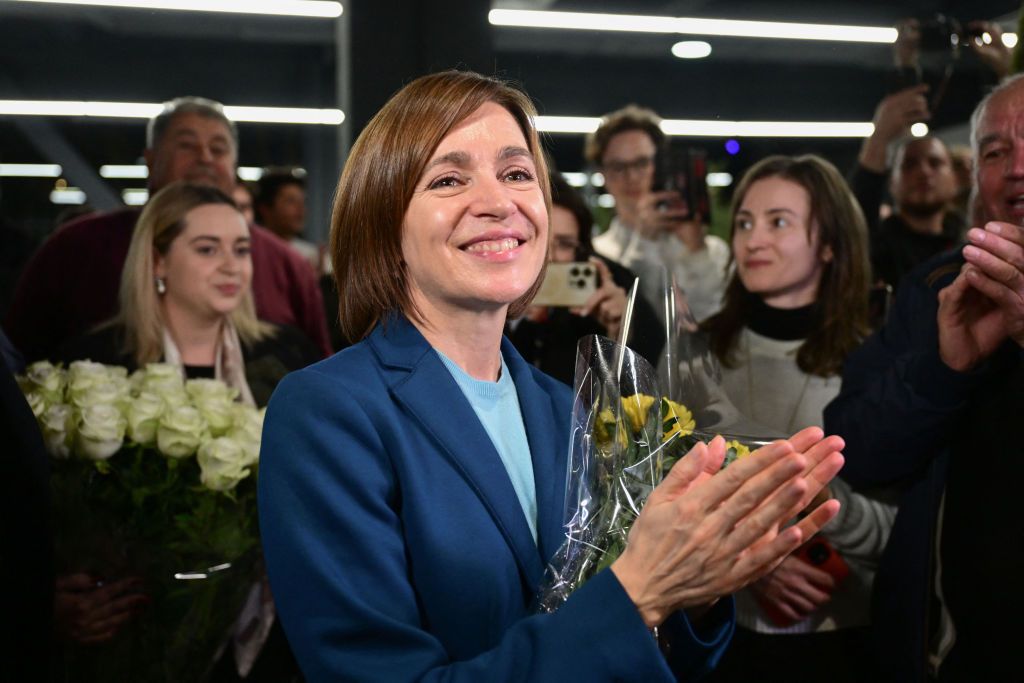Russia doesn't recognize Moldovan President Sandu's re-election, Kremlin spokesperson says

Russia does not recognize incumbent Moldavan President Maia Sandu’s recent election victory, Kremlin spokesperson Dmitry Peskov told the pro-state Kommersant news outlet on Nov. 5.
"She is not, as far as we understand, the president of her country because, in the country itself, the majority of the population did not vote for her," Peskov said.
Pro-EU Sandu won on Nov. 3 by a margin of about 55.3% to 44.7% despite what she called an "unprecedented" election interference backed by Moscow.
The Russian-friendly Party of Socialists, who supported Sandu's opponent Alexandr Stoianoglo, also announced on Nov. 5 that they do not view Sandu as legitimately elected and will not recognize her as president.
Igor Dodon, Sandu's Kremlin-backed predecessor and the Socialist chairman, accused the president of "brazen manipulations" and said that she was elected only thanks to diaspora votes. The party plans an appeal to the Constitutional Court and the Central Election Committee regarding alleged "violations by authorities."
The election saw a record turnout among the Moldovan diaspora. Some 327,000 votes were cast from abroad, of which over 80% were for Sandu.
At home, the incumbent president received 48.67% of the vote, compared to 51.3% won by former Prosecutor General Stoianoglo. The country of 2.5 million saw a 54% turnout.
Moldovan authorities, independent observers, and officials from the EU and the U.S. pointed to a malign influence campaign involving criminal networks and political groups tied to Russia. Moldovan lawmakers claimed that Moscow spent millions of dollars backing Stoianoglo.
Sandu has long insisted that the real opponent to her government and Moldova's European path is the Kremlin, which has been waging a hybrid war designed to push Chisinau back into Moscow's orbit in what Sandu described "a fraud of unprecedented proportions."











